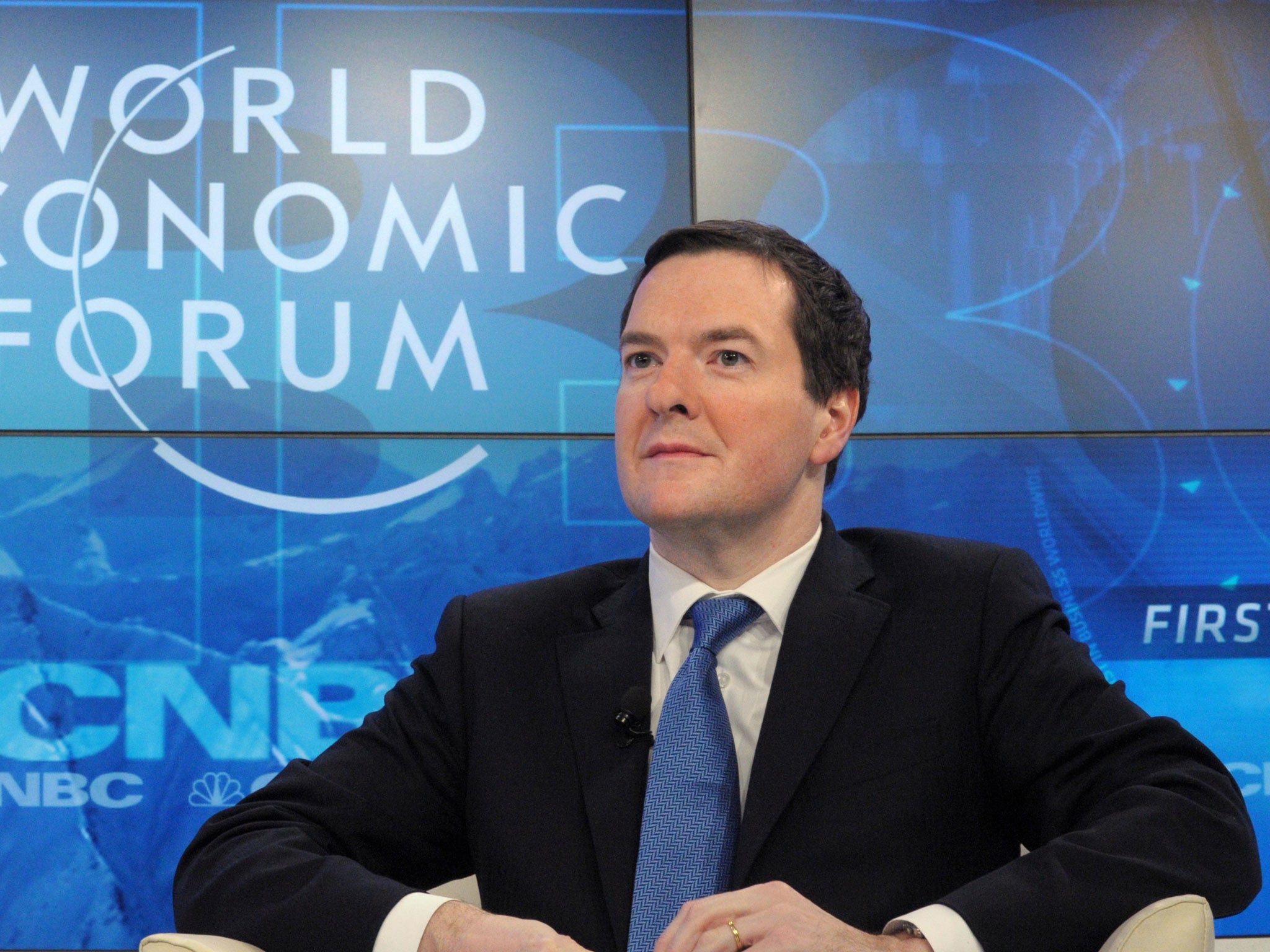The Bank of England’s flagship policy of forward guidance on interest rates will “evolve” next month, Mark Carney said yesterday, as he sought again to dampen expectations of an imminent rate rise.
Speaking to the CBI at the World Economic Forum in Davos, Switzerland, the Governor confirmed that the policy would be assessed by the Bank’s Monetary Policy Committee next month and that policymakers would consider “a range of options to update our guidance”.
However, he added that “the degree of stimulus will remain exceptional for some time” and that when the time did come to put up rates, the rises would only be “gradual”. Mr Carney said: “That should help reassure British business that the path of interest rates will be consistent with a sustained recovery.”
He also suggested that rates would remain below “historical norms” for the “medium term”, the first time the Bank has laid out its thinking on monetary policy over such an extended timeframe.
Under the Bank’s original forward guidance, which was unveiled when Mr Carney became Governor last summer, Threadneedle Street pledged to hold rates down until unemployment fell to 7 per cent, something it did not expect to occur until 2016. But the jobless rate has fallen much more rapidly, dropping to 7.1 per cent in the most recent figures, and putting a hike into play.
Mr Carney suggested the Bank is likely to take into account a wider range of labour market indicators in setting policy, as well as the jobless rate. This could include the proportion of people who want to work more hours. He noted yesterday that the number of people who are in involuntary part-time work was still high.
Some have speculated that the Bank might decide to lower its unemployment threshold to 6.5 per cent. But that idea was criticised by an external member of the MPC, Martin Weale, yesterday. In a newspaper interview Mr Weale said that a lower threshold could be similarly overtaken by events. “I do not feel terribly enthusiastic about a reduction from 7 per cent to 6.5 per cent. The purpose of forward guidance was to create greater certainty,” he said.
Despite the Bank’s claim that forward guidance will merely evolve, some in the City have concluded that the policy has effectively been dropped. “UK unemployment is no longer central to the BoE’s forward policy guidance, but a balanced and sustainable recovery is,” said Lena Komileva of G+ Economics.
But George Osborne, also in Davos, vigorously defended the Bank from criticism that its original policy had failed, insisting that the prospect of an earlier-than-expected interest rate hike was a “mark of success” for the UK’s economic policy. “I completely reject that forward guidance has failed,” said the Chancellor. “We’re talking about exit. That in itself is a mark of success. We’re only having this discussion because there is a recovery under way.”
In a sideswipe at critics of his austerity fiscal policies Mr Osborne added: “Monetary policy works and [has] confounded those who said it was never going to work and that we needed other things.”
Elsewhere in Davos yesterday the managing director of the International Monetary Fund, Christine Lagarde, warned against a mood of complacency from policymakers and financiers over the international economy.
Subscribe to Independent Premium to bookmark this article
Want to bookmark your favourite articles and stories to read or reference later? Start your Independent Premium subscription today.


Join our commenting forum
Join thought-provoking conversations, follow other Independent readers and see their replies